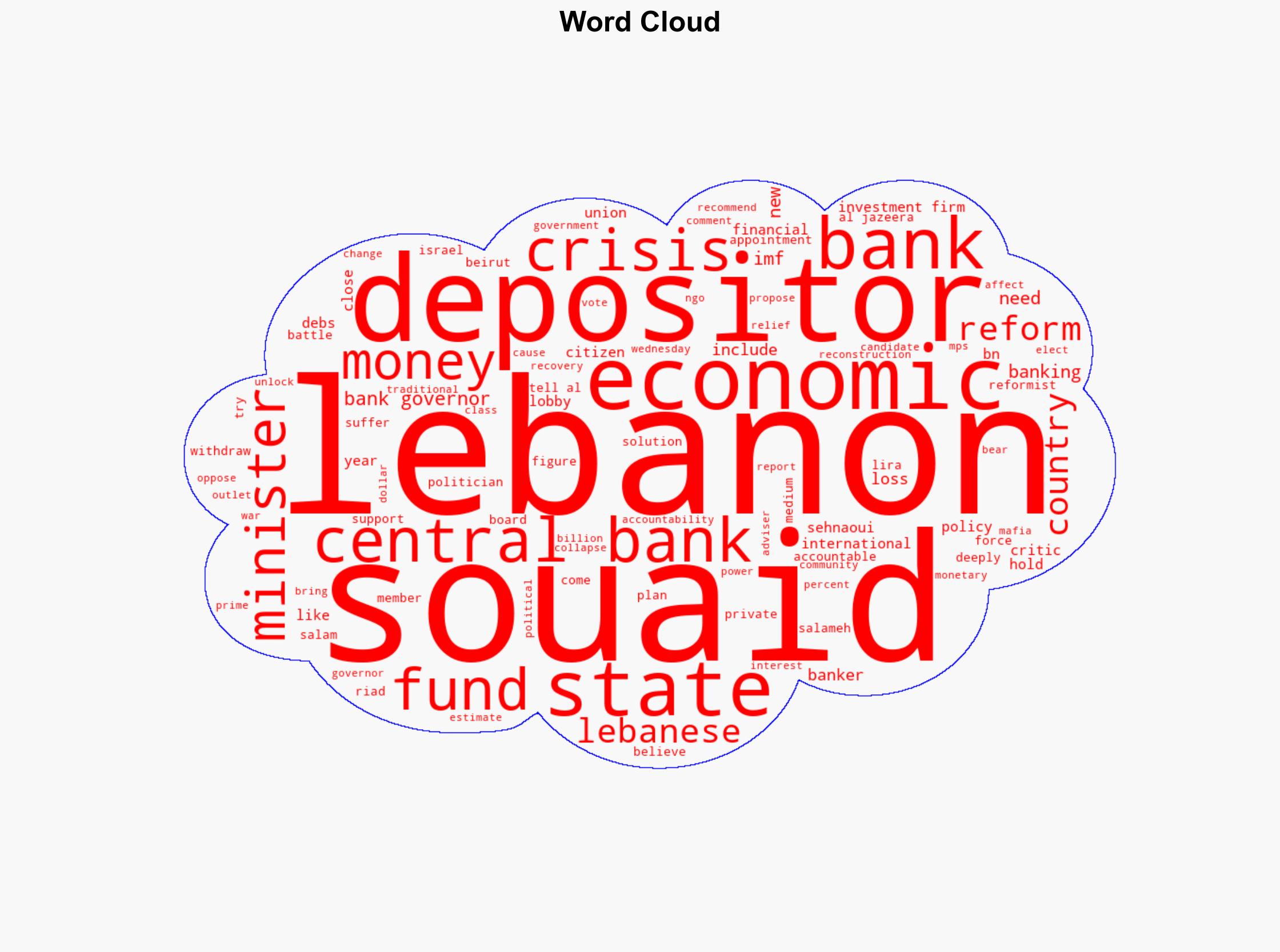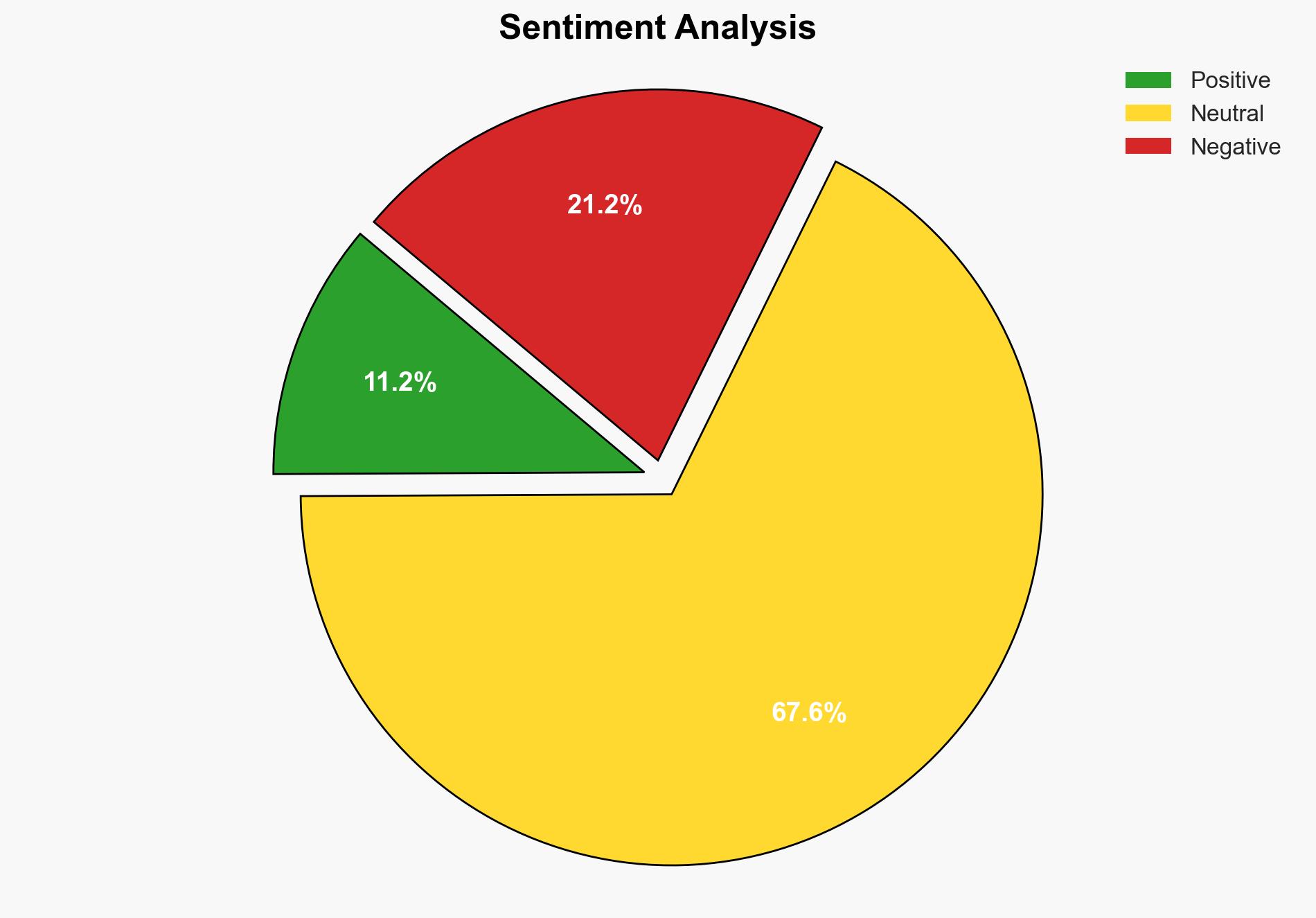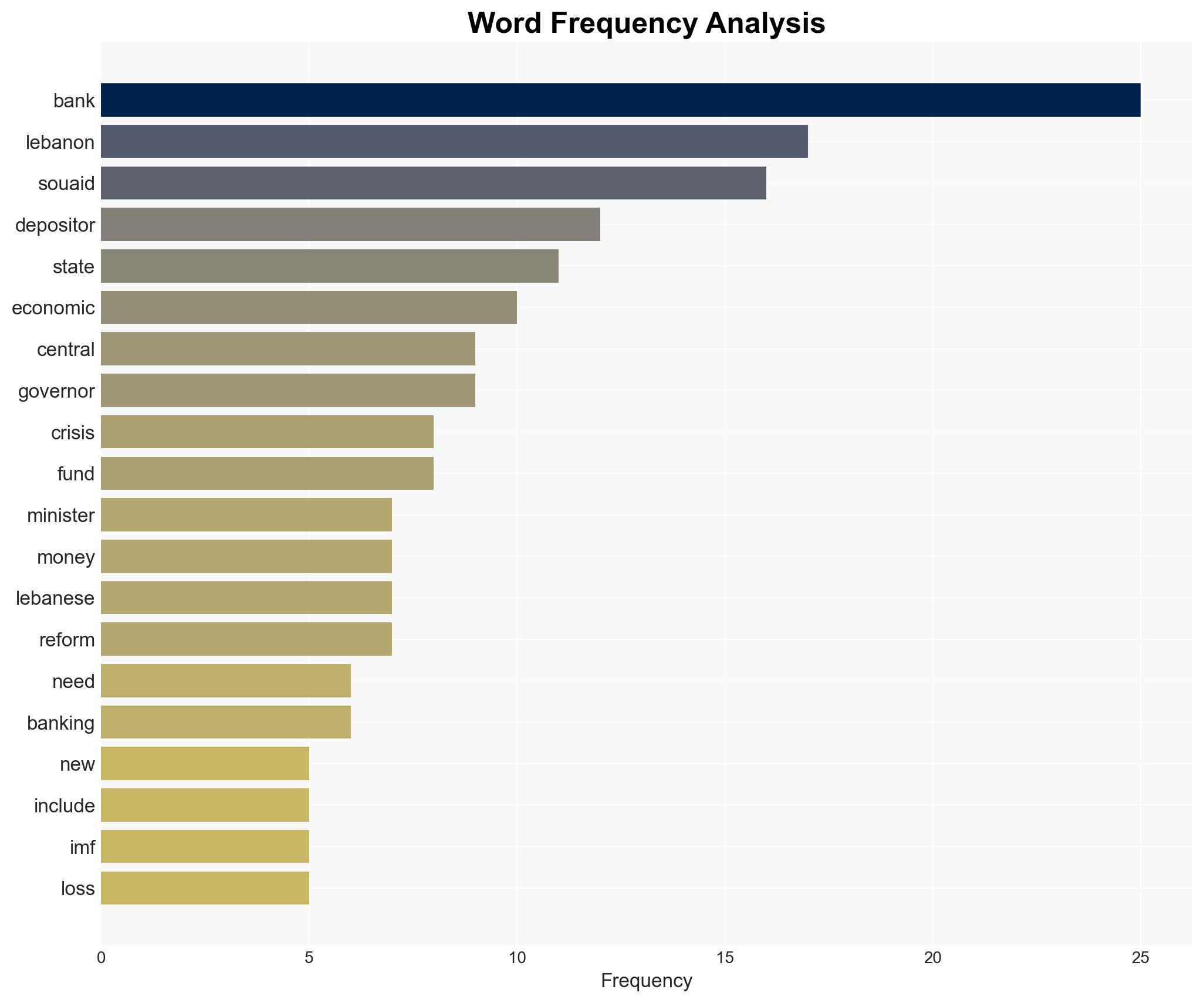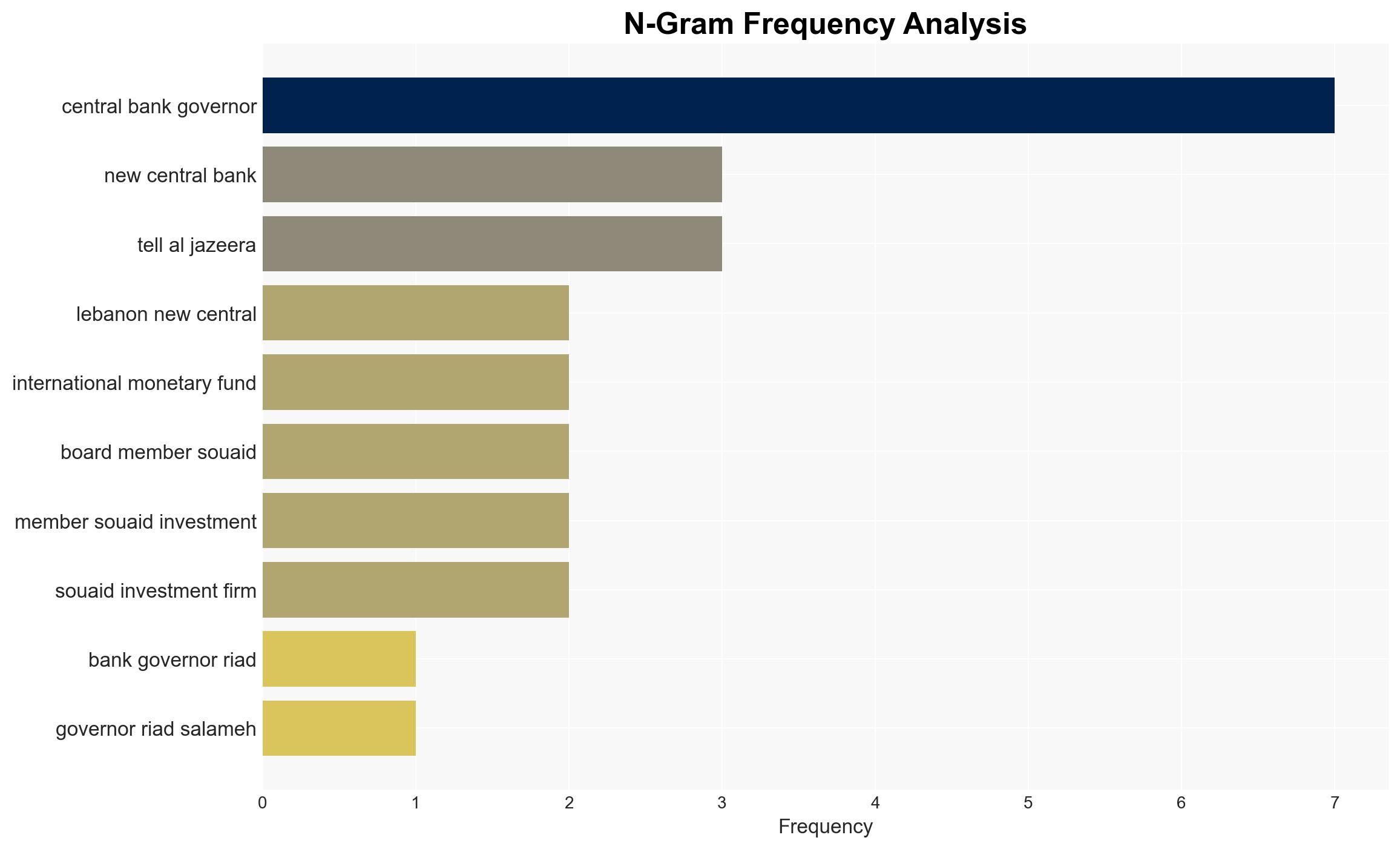Is Lebanons new central bank governor another Riad Salameh – Al Jazeera English
Published on: 2025-03-30
Intelligence Report: Is Lebanon’s New Central Bank Governor Another Riad Salameh – Al Jazeera English
1. BLUF (Bottom Line Up Front)
Lebanon’s appointment of Karim Souaid as the new central bank governor has sparked controversy and debate over his potential impact on the country’s financial recovery. Critics argue that Souaid’s close ties to traditional power structures and the banking lobby may hinder necessary reforms. The International Monetary Fund (IMF) has highlighted the need for significant economic reforms to unlock relief funds, which are crucial for Lebanon’s recovery from its ongoing economic crisis.
2. Detailed Analysis
The following structured analytic techniques have been applied for this analysis:
General Analysis
Lebanon is experiencing a severe economic crisis, exacerbated by political instability and a lack of effective governance. The appointment of Karim Souaid has been met with skepticism due to his perceived alignment with the banking lobby and traditional political parties. This alignment raises concerns about the likelihood of implementing the IMF-recommended reforms, which include restructuring the banking sector and preserving depositors’ rights. The ongoing political impasse and lack of accountability for past financial mismanagement further complicate the situation.
3. Implications and Strategic Risks
The appointment of Karim Souaid poses several strategic risks:
- Potential delay in implementing necessary economic reforms, risking further deterioration of Lebanon’s financial situation.
- Increased public dissatisfaction and potential unrest due to perceived favoritism towards the banking sector.
- Continued political instability, hindering international aid and investment.
- Risk of Lebanon defaulting on its financial obligations, exacerbating the economic crisis.
4. Recommendations and Outlook
Recommendations:
- Encourage transparency and accountability in the central bank’s operations to build public trust.
- Promote dialogue between the government, banking sector, and civil society to ensure inclusive reform processes.
- Implement regulatory changes to reduce the influence of the banking lobby on economic policy.
- Strengthen international partnerships to secure financial aid and technical support for reforms.
Outlook:
Best-case scenario: Lebanon successfully implements IMF-recommended reforms, stabilizing the economy and restoring international confidence.
Worst-case scenario: Continued political and economic instability leads to further financial collapse and social unrest.
Most likely outcome: Slow progress on reforms due to political resistance, with partial recovery contingent on international support.
5. Key Individuals and Entities
The report mentions significant individuals and organizations:
- Karim Souaid
- Riad Salameh
- Nawaf Salam
- Joseph Aoun
- Varouj Nerguizian
- Mohammad Farida
- Walid Marrouch
These individuals are central to the ongoing discussions and decisions regarding Lebanon’s economic future and the implementation of necessary reforms.




